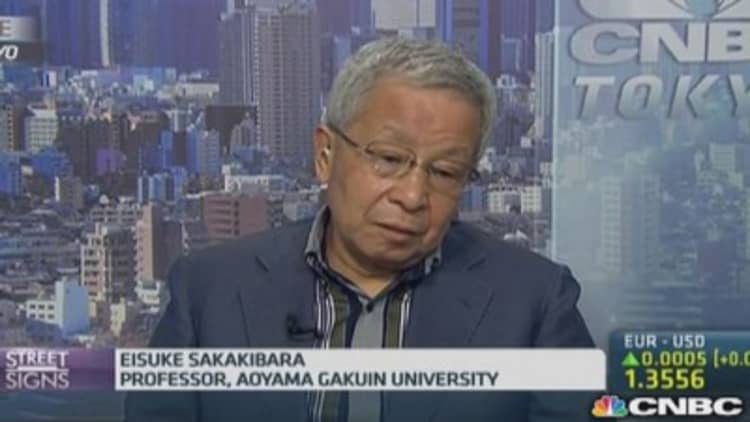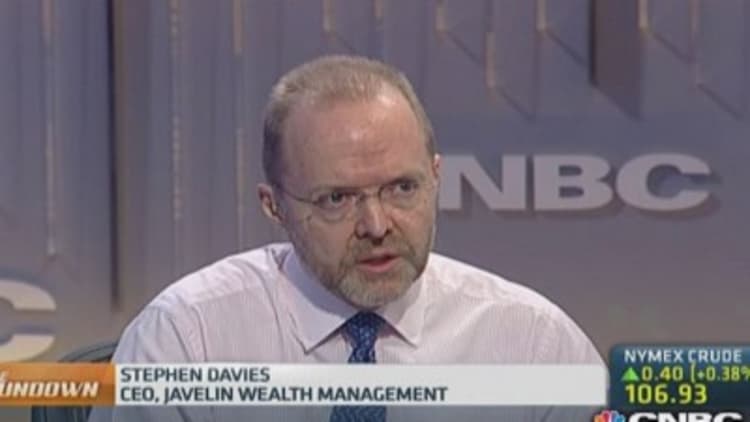Asian equities turned mixed on Friday amid concerns about violence in Iraq and signs of improving economic activity from China.
U.S. president Barack Obama warned of possible military strikes in Iraq as a rebellion led by a Sunni Islamist group called the Islamic State of Iraq spreads rapidly through the country. Late on Thursday, Kurdish forces in the north took control of Kirkuk, home to the Kirkuk-Ceyhan oil pipeline, to protect it from the Islamists. The Iraqi government has since launched air strikes on insurgents in Mosul, which the militants took control of earlier this week.
Read MoreIraq may dent but not derail market rally
Investors digested a raft of May economic data from China. Retail sales rose 12.5 percent on year, beating expectations for a 12.1 percent increase, while industrial output increased 8.8 percent on year, in line with estimates. Fixed asset investment rose 17.2 percent on year for the January-to-May period, just above expectations for a 17.1 percent rise.
Nikkei 0.5% higher
Japan's benchmark Nikkei index bounced off a two-week low hit earlier in the session after Prime Minister Abe said that the government will aim to cut the corporate tax rate below 30 percent over the next few years, starting from the next fiscal year.

Commodity-related stocks led the gains; Nisshin Steel rallied 7.5 percent while Japan Steel Works and Pacific Metals rose nearly 4 percent.
As expected, the Bank of Japan (BOJ) left monetary policy unchanged. Speaking at a press conference, Governor Kuroda said the economy will continue its moderate recovery despite the decline in demand from April's sales tax hike.
China shares higher
Mainland shares jumped 1 percent to its strongest level in nearly two months, bucking Asia-wide losses, while the yuan rose to a new two-month high against the dollar.
Financials rose after the central bank on Thursday reported banks lent $140 billion in May, much higher than the previous month and above expectations. Bank of China and China Merchants Bank jumped 1.4 percent each while Shanghai Pudong Bank rallied 2 percent.
Read MoreAre China's property vacancies a danger sign?
Hong Kong's benchmark Hang Seng Index rose 0.7 percent, snapping a two-day losing streak.

ASX slips 0.4%
Australia's benchmark S&P ASX 200 index fell to a three-and-a-half week closing low, down 1 percent for the week, while the Australian dollar fell off a seven-month high against the greenback.
Miners lost ground as iron ore prices declined further to $92 a tone while nickel prices fell to a two-month low. Fortescue Metals shed 6 percent while Rio Tinto and BHP Billiton closed down nerly 2 percent each.
Gold miners bucked the trend thanks to a rally in bullion prices. Alacer Gold surged nearly 8 percent while Endeavor Mining and Kingsgate Consolidated added over 5 percent each.
Kospi down 1%
South Korean shares saw their worst session in seven weeks on heavy foreign selling. Investors also digested data out early in the day, which showed exports slipped an annual 1 percent in May, compared to initial readings for a 0.9 percent drop.
Blue-chips Samsung Electronics eased 3 percent while steelmaker Posco eased 1.5 percent.
Emerging markets mixed
Indian shares retreated by 1.3 percent while Thailand's benchmark SET Index finished flat after the leader of the country's military junta said an interim government would be set up by August.

